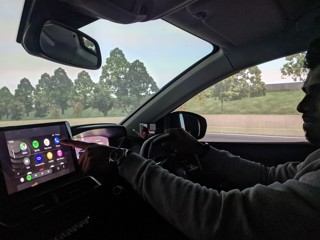Fleets are being warned about an increased risk of drug driving as company car and van drivers return to work from furlough.
The warning, from a major supplier of drug driver testing equipment, comes as figures from the police show how drug driving is becoming more prevalent than drink driving.
D.tec International, which supplies the ‘DrugWipe’ roadside test kits to every police force in England, Wales and Scotland, says the figures are “shocking”.
During the first six months of the year, the combined number of drug drive arrests for three police forces was 50% higher than those for drink driving.
In Essex, there were 1,323 arrests for drug driving, more than double the number of those for drink driving (647).
In Merseyside, it was the same story, with 1,121 drug drive arrests and 570 for drink driving. But in West Yorkshire, the figures for drink and drug driving, while still high, were on a similar level, with 1,235 drug driving arrests and 1,178 for drink driving.
Police forces started reporting arrests for drug driving had surpassed drink-driving for the first time, last year.
Ean Lewin, managing director of D.tec International, said: “I know I have been going on about the magnitude of drug drive versus drink drive for a number of years, but even I am shocked by the recent arrest figures for the first half of 2020.
“During the last few months during lockdown, it got even worse.”
In 2019, Merseyside became the first force to record more than 2,000 annual drug drive arrests – and there were more than a dozen forces with more or equivalent drug drive arrests, compared to those for drink driving.
Looking specifically at the lockdown period alone, in April and May 2020 Essex Police recorded two-and-a-half to three times more drug drive arrests, compared to drink drive.
Lewin continued: “The issue is that companies are bringing back these employees from furlough and simply not looking at the drug and alcohol issues that have been created.
“The EMCDDA (European Monitoring Centre for Drugs and Drug Addiction) has been looking at this issue during the lock down period, and in an extensive report says that ‘those who use drink or drugs are now using more’.”
Furthermore, Lewin says he has heard of companies seeing employees coming back to work who have “needed a crutch” in the form of alcohol or drugs during lockdown – and are now asking for help to deal with the issue.
Four out of five respondents to a Fleet News poll said drug-driving had become such a safety issue for fleets that they think employers should be routinely testing company car and van drivers.
At the time, the National Police Chiefs’ Council (NPCC) lead for roads policing, chief constable Anthony Bangham, said he was “concerned” to see the increase in the number of motorists testing positive for drugs.
He told Fleet News public perception of the issue needs to change.
“Drink driving is considered socially unacceptable by the vast majority of the public, yet the emergence of drug-driving is perhaps not yet seen in the same way,” he said.





















Login to comment
Comments
No comments have been made yet.